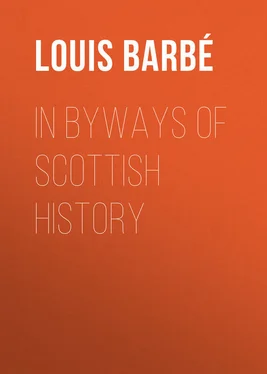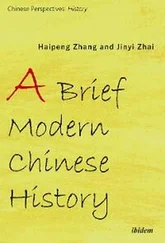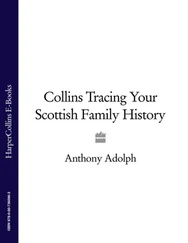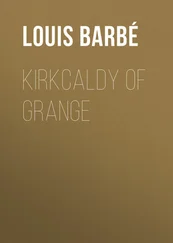Louis Barbé - In Byways of Scottish History
Здесь есть возможность читать онлайн «Louis Barbé - In Byways of Scottish History» — ознакомительный отрывок электронной книги совершенно бесплатно, а после прочтения отрывка купить полную версию. В некоторых случаях можно слушать аудио, скачать через торрент в формате fb2 и присутствует краткое содержание. Жанр: foreign_antique, foreign_prose, на английском языке. Описание произведения, (предисловие) а так же отзывы посетителей доступны на портале библиотеки ЛибКат.
- Название:In Byways of Scottish History
- Автор:
- Жанр:
- Год:неизвестен
- ISBN:нет данных
- Рейтинг книги:4 / 5. Голосов: 1
-
Избранное:Добавить в избранное
- Отзывы:
-
Ваша оценка:
- 80
- 1
- 2
- 3
- 4
- 5
In Byways of Scottish History: краткое содержание, описание и аннотация
Предлагаем к чтению аннотацию, описание, краткое содержание или предисловие (зависит от того, что написал сам автор книги «In Byways of Scottish History»). Если вы не нашли необходимую информацию о книге — напишите в комментариях, мы постараемся отыскать её.
In Byways of Scottish History — читать онлайн ознакомительный отрывок
Ниже представлен текст книги, разбитый по страницам. Система сохранения места последней прочитанной страницы, позволяет с удобством читать онлайн бесплатно книгу «In Byways of Scottish History», без необходимости каждый раз заново искать на чём Вы остановились. Поставьте закладку, и сможете в любой момент перейти на страницу, на которой закончили чтение.
Интервал:
Закладка:
Brantôme, to whom we are indebted for so much personal description of Mary Stuart, and so many intimate details concerning her character, tastes, and acquirements, is less communicative with respect to her four fair attendants. He merely mentions them amongst the court beauties as "Mesdamoiselles de Flammin, de Ceton, Beton, Leviston, escoissaises". 54He makes no allusion to them in the pathetic description of the young queen's departure from her "sweet France" on the fateful 24th of August, a date which subsequent events were destined to mark with a fearful stain of blood, in the family to which she was allied. Yet, doubtless they, too, were gazing with tearful eyes at the receding shore, blessing the calm which retarded their course, trembling with vague fears as their voyage began amidst the cries of drowning men, and half wishing that the English ships of the jealous Elizabeth might prevent them from reaching their dreary destination. That they were with their royal namesake, we know. Leslie, who, with Brantôme and the unfortunate Chastelard, accompanied the idol of France to her unsympathetic northern home, again makes special note of "the four maidis of honour quha passit with hir Hienes in France, of her awin aige, bering the name everie ane of Marie, as is befoir mencioned".
During the first years of Mary Stuart's stay in her capital, the four maids of honour played conspicuous parts in all the amusements and festivities of the court, and were amongst those who incurred the censure of the austere Reformers for introducing into Holyrood the "balling, and dancing, and banquetting" 55of Amboise and Fontainbleau. Were our information about the masques acted at the Scottish Court less scanty, we should, doubtless, often find the names of the four Marys amongst the performers. Who more fit than they to figure in the first masque represented at Holyrood, in October, 1561, at the Queen's farewell banquet to her uncle, the Grand Prior of the Knights of St. John, and to take their places amongst the Muses who marched in procession before the throne, reciting Buchanan's flattering verses in praise of the lettered court of the Queen of Scots?
Banished by War, to thee we take our flight,
Who still dost worship at the Muses' shrine,
And, solaced by thy presence, day and night,
Nor murmur at our exile, nor repine.
Had Marioreybanks given us the names of those who took part in the festivities which he describes as having taken place on the occasion of Lord Fleming's marriage, can we doubt that the Marys would have been found actively engaged in the open-air performance "in the Parke of Holyroudhous, under Arthur's Seatt, at the end of the loche"? 56Indeed, it is not matter of mere conjecture, but of authentic historical record, that on more than one occasion Buchanan did actually introduce the Queen's namesakes amongst the dramatis personæ of the masques which, as virtual laureate of the Scottish Court, he was called upon to supply. The Diurnal of Occurrents mentions that "upoun the ellevint day of the said moneth (February) the King and Quene in lyik manner bankettit the samin (French) Ambassatour; and at evin our Soveranis maid the maskrie and mumschance, in the quhilk the Queenis Grace and all hir Maries and ladies were all cled in men's apperell; and everie ane of thame presentit ane quhingar, bravelie and maist artificiallie made and embroiderit with gold, to the said Ambassatour and his gentilmen, everie ane of thame according to his estate". 57That this, moreover, was not the first appearance of the fair performers we also know, for it was they who bore the chief parts in the third masque acted during the festivities which attended the Queen's marriage with Darnley; and it was one of them, perhaps Mary Beton, the scholar of the court, who recited the verses which Buchanan had introduced in allusion to their royal mistress's recovery from some illness otherwise unrecorded in history:
Kind Goddess, Health, four Nymphs their voices raise
To welcome thy return and sing thy praise,
To beg as suppliants that thou wouldst deign
To smile benignly on their Queen again,
And make her royal breast thy hallowed shrine,
Where best and worthiest worship shall be thine.
That the four Nymphs mentioned in this, the only fragment of the masque which has been preserved, were the four Marys, is explained by Buchanan's commentator, Ruddiman: "Nymphas his vocat quatuor Mariæ Scotæ corporis ministras, quæ etiam omnes Mariæ nominabantur". It is more than probable, too, that the Marys were not merely spectators of the masque which formed a part of the first day's amusements, and of which they themselves were the subject-matter. It may still be read under the title of "Pompa Deorum in Nuptiis Mariæ", in Buchanan's Latin poems. Diana opens the masque, which is but a short mythological dialogue, with a complaint to the ruler of Olympus that one of her five Marys – the Queen herself is here included – has been taken from her by the envious arts of Venus and of Juno:
Five Marys erst my boast and glory were,
Each one in youthful beauty passing fair;
Whilst these enhanced the splendour of my state
To all the gods I seemed too fortunate,
Till Venus, urged by Juno in her ire,
Stole one away and marred my comely quire,
Whereof the other four now grieve that they
Must, like the Pleiads, shine with lessened ray.
In the dialogue which follows, and in which five goddesses and five gods take part, Apollo chimes in with a prophecy which was only partially accomplished:
Fear not, Diana, cast away thy care,
And hear the tidings which I prescient bear;
Juno decrees thy Marys shall be wed,
And in all state to Hymen's altar led,
But each to fill its lessened ranks again,
Will add her offspring to thy beauteous train.
In his summing up, which, as may be imagined, is not very favourable to the complainant, the Olympian judge also introduces a prettily turned compliment to the Marys:
Five Marys erst were thine and each one meet
With goddesses in beauty to compete;
Each worthy of a god, if iron fate
Allowed the gods to choose a mortal mate.
The whole pageant closes with an epilogue spoken by the herald Talthybius, who also foretells further defections from Diana's maidens:
Another marriage! Hear the joyful cry:
Another Mary joined in nuptial tie!
As was but natural, the Queen's favourite attendants possessed considerable influence with their royal lady, and the sequel will show, in the case of each of them, how eagerly their good offices were sought after by courtiers and ambassadors anxious for the success of their several suits and missions. In a letter which Randolph wrote to Cecil on the 24th of October, 1564, and which, as applying to the Marys collectively, may be quoted here, we are shown the haughty Lennox himself condescending to make pretty presents to the maids with a view to ingratiating himself with the mistress. "He presented also each of the Marys with such pretty things as he thought fittest for them, such good means he hath to win their hearts, and to make his way to further effect." 58
MARY FLEMING
It is scarcely the result of mere chance that, in the chronicles which make mention of the four Marys, Mary Fleming's name usually takes precedence of those of her three colleagues. She seems to have been tacitly recognized as "prima inter pares". This was, doubtless, less in consequence of her belonging to one of the first houses in Scotland, for the Livingstons, the Betons, and the Setons might well claim equality with the Flemings, than of her being closely related to Mary Stuart herself, though the relationship, it is true, was only on the side of the distaff, and though there was, moreover, a bar sinister on the royal quarterings which it added to the escutcheon of the Flemings. Mary Fleming – Marie Flemyng, as she signed herself, or Flamy, as she was called in the Queen's broken English – was the fourth daughter of Malcolm, third Lord Fleming. Her mother, Janet Stuart, was a natural daughter of King James IV. Mary Fleming and her royal mistress were consequently first cousins. This may sufficiently account for the greater intimacy which existed between them. Thus, after Chastelard's outrage, it was Mary Fleming whom the Queen, dreading the loneliness which had rendered the wild attempt possible, called in to sleep with her, for protection.
Читать дальшеИнтервал:
Закладка:
Похожие книги на «In Byways of Scottish History»
Представляем Вашему вниманию похожие книги на «In Byways of Scottish History» списком для выбора. Мы отобрали схожую по названию и смыслу литературу в надежде предоставить читателям больше вариантов отыскать новые, интересные, ещё непрочитанные произведения.
Обсуждение, отзывы о книге «In Byways of Scottish History» и просто собственные мнения читателей. Оставьте ваши комментарии, напишите, что Вы думаете о произведении, его смысле или главных героях. Укажите что конкретно понравилось, а что нет, и почему Вы так считаете.












